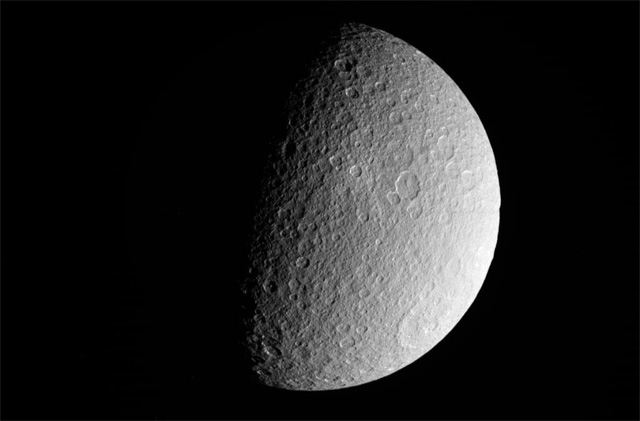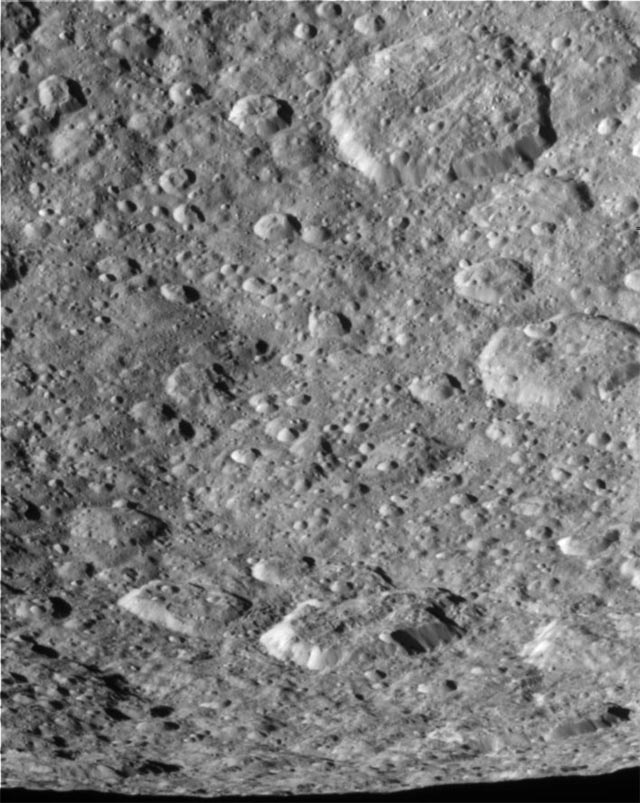NASA’s Cassini spacecraft has returned new close-up images of Saturn’s second largest moon, Rhea.

Saturn's moon Rhea (NASA / JPL-Caltech / SSI)
According to the mission’s website, these raw images of Rhea were taken on March 10, 2012.
This was a relatively distant flyby with a close-approach distance of 26,000 miles (42,000 kilometers), well suited for global geologic mapping.
During the flyby, Cassini captured these distinctive views of the moon’s cratered surface, creating a 30-frame mosaic of Rhea’s leading hemisphere and the side of the moon that faces away from Saturn.

Rhea's Surface (NASA / JPL-Caltech / SSI)
The observations included the large Mamaldi (300 miles, or 480 kilometers, across) and Tirawa (220 miles, or 360 kilometers, across) impact basins and the 29-miles (47-kilometers) ray crater Inktomi, one of the youngest surface features on Rhea (about 950 miles, or 1,530 kilometers, across).







